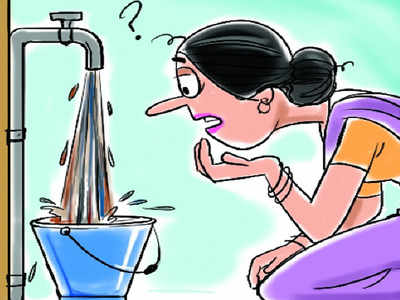The Times of India 01.08.2012
To keep check on water tankers, civic body may stick to 10% cut
MUMBAI: The megacities’
lake levels are be at a three-year low but the BMC may continue with
only 10% water cut unlike in 2009, when it was hiked to over 20%. The
decision not to increase the cut is aimed at breaking the monopoly of
some water tanker agencies in the city, as with the rise in rates,
profits made by the tanker agencies also go up.
For now, the
BMC’s plan seems to be working. “This year we have not been supplying
much water. There are a few sporadic calls but nothing like the demand
in 2009. That year we had to hire extra water tankers to meet the
demand,” a member of the city’s water tanker association said.
On Wednesday, the civic body’s top officials will take stock of the
situation and plan ahead for the rest of the year. “Mumbaikars need not
panic, they must use water judicially. The corporation is keeping a
close tab on situation and will take necessary measure so that the
city’s water stock will last till July 15, 2013,” additional municipal
commissioner Rajiv Jalota told TOI.
Though BMC claims that 10% water cut only affects water pressure,
localities at the fag end of Mumbai’s water network like M-east ward
(Chembur) have a different story to tell. “In my ward, we suffer form
water scarcity throughout the year and have to depend on tankers. My
constituency is predominantly of Muslims and the water cut has coincided
with the holy month of Ramzaan,” M-east corporator Rais Shaikh said. The BMC sells 10,000 litres of water for Rs 156, but tankers across the
city charge anywhere between Rs 1,000 and Rs 5,000, depending upon the
demand and the rate of the water cut. In M-east ward before the 10%
water cut was imposed the cost of one tanker was Rs 850, and today it
costs Rs 1,150.
In 2009, when the city faced water cut as high as 30%, the price of tankers sky rocketed. K. Varyani, former president of the Lokhandwala Garden Association
(K-west), said, “In 2009, the price of tanker went as high as Rs 4,500
to Rs 5,000.” In parts of Bandra, residents pay as much as Rs 7,000 for
one tanker of drinking water and Rs 4,500 for one tanker of borewell or
hard water.
BMC’s hydraulic department officials, too, said
there is no reason to panic. “Mumbai’s monsoon lasts from June to
September. In 2010, it even rained up to the second week of November. In
all likelihood, the monsoon will persist beyond September. Besides, we
will also get 455MLD from the Middle Vaitarana dam,” they said.

